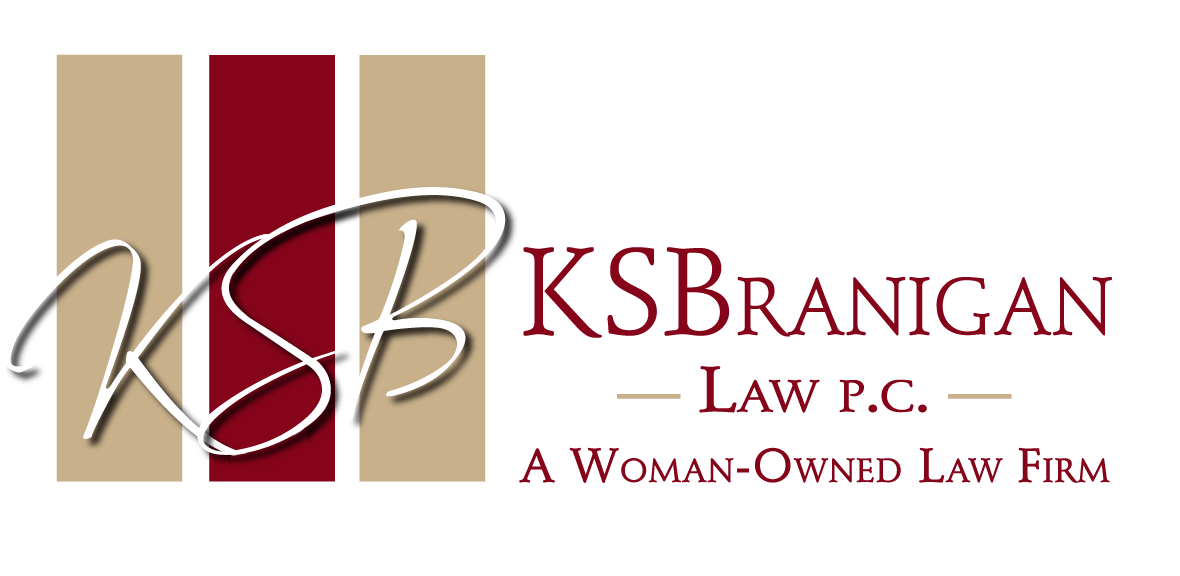In McLaren Macomb and Local 40 RN Staff Council, Office and Professional Employees, International Union (OPEIU), AFL–CIO, Case 07–CA–263041, the National Labor Relations Board (NLRB) held that certain non-disparagement and confidentiality clauses in severance agreements may violate the rights of both union and non-union employees to engage in protected concerted activity under Section 7 of the National Labor Relations Act (NLRA). In doing so, the NLRB reversed prior NLRB precedent and returned to a standard that evaluated severance agreement provisions on their face as to whether they were unlawfully coercive in restricting Section 7 rights without a need to show the employer’s commission of additional unfair labor practices or other external circumstances.
Facts
By way of background, the employer in McLaren Macomb operated a hospital in which the union was certified as the exclusive collective bargaining representative. During the early stages of the COVID-19 pandemic in March 2020, the employer terminated its outpatient services and admitted only trauma, emergency, and COVID-19 patients and temporarily furloughed 11 bargaining unit employees as nonessential employees. In June 2020, the employer permanently furloughed those 11 employees. With the furloughs, the employer presented severance agreements that offered different severance amounts but included a similar release as well as (1) a non-disparagement clause (prohibiting employees from making statements that could disparage or harm the image of the employer) and (2) a confidentiality clause (prohibiting employees from disclosing agreements’ terms). All 11 employees signed the agreements that required them to release the employer from any claims arising out of their employment or termination of employment. The agreements further provided for substantial monetary and injunctive sanctions against the employees in the event they breached the non-disparagement and confidentiality proscriptions. The employer failed to provide the union with notice that it was permanently furloughing the 11 employees or an opportunity to bargain regarding that decision and its effects, bypassing and excluding the union entirely.
ALJ Decision
The administrative law judge (ALJ) ruled that the employer violated Sections 8(a)(5) and 8(a)(1) of the NLRA by permanently furloughing the 11 employees without first notifying the union/providing an opportunity to bargain about the furlough decision and its effects. The employer did not show economic exigency excusing its bargaining obligation. Further, the ALJ ruled that the employer violated Sections 8(a)(5) and 8(a)(1) of the NLRA by communicating and directly dealing with the 11 employees regarding the severance agreements while entirely bypassing and excluding the union. However, the ALJ found that the employer did not violate Section 8(a)(1) of the NLRB by proffering the severance agreements themselves to the permanently furloughed employees.
In rendering its determination, the ALJ relied on a previous NLRB precedent captioned Baylor University Medical Center, 369 NLRB No. 43 (2020). In Baylor, the NLRB held that the employer did not violate the NLRA by merely proffering the severance agreement that required the signer to agree not to “pursue, assist, or participate in any claim” against Baylor and to keep a broad swath of information confidential. The agreement was not mandatory, pertained exclusively to post employment activities, and therefore, had no impact on terms and conditions of employment. There was also no allegation that anyone offered the agreement had been unlawfully discharged or that the agreement was proffered under circumstances that would tend to infringe upon Section 7 rights.
The ALJ further relied on IGT d/b/a International Game Technology, 370 NLRB No. 50 (2020), in which the NLRB dismissed an allegation that the employer maintained an unlawful non-disparagement provision in the severance agreement offered to separated employees. The provision required the signer to agree not to disparage or discredit IGT or any of its affiliates, officers, directors, and employees. The NLRB reasoned that the agreement was entirely voluntary, did not affect pay or benefits that were established as of terms of employment, and had not been proffered coercively.
National Labor Relations Board
On appeal, the NLRB discussed the General Counsel’s Amended Complaint and its assertions that the non-disparagement and confidentiality provisions of the severance agreements unlawfully restrained and coerced the furloughed employees in the exercise of their Section 7 rights. The NLRB evaluated the ALJ’s application of previous NLRB case law in Baylor and IGT, which enabled the ALJ to find these provisions to be lawful and conclude that the severance agreements and the proffer of the agreements to the furloughed employees were lawful.
In issuing the prior decisions, the NLRB had overruled precedent in Clark Distribution Systems, 336 NLRB 747 (2001), which examined the facial language of the proffered severance agreement and found the proffer of the severance agreement to be unlawful because the language itself restricted Section 7 rights without regard to the employer’s commission of additional unfair labor practices or other external circumstances. This disrupted long-settled NLRB precedent determining that agreements containing broad proscriptions on employees’ exercise of Section 7 rights were unlawful because they purported to create an enforceable legal obligation to forfeit those rights. Proffers of such agreements to employees have also been held to be unlawfully coercive.
Thus, upon review in McLaren Macomb, the NLRB determined that the non-disparagement clause was unlawful on its face because public statements by employees about the workplace are central to the exercise of employee rights under the NLRB. Further, the NLRB noted that the ban was expansive and applied to statements not only towards the employer but also to its parents and affiliated entities and their officers, directors, employees, agents, and representatives. Additionally, the provision had no temporal limitation and applied at all times such that the end result was a sweepingly broad bar that would have a chilling tendency on the exercise of Section 7 rights.
Similarly, the NLRB determined that the confidentiality clause was unlawful on its face because it prohibited the subject employee from disclosing the terms of the agreement to any third person. The NLRB noted that the provision would prevent an employee from filing an unfair labor practice charge or assisting a Board investigation into the employer’s use of the severance agreement, including the non-disparagement provision. The provision contravened established public policy that all persons with knowledge of unfair labor practices should be free from coercion. As such, the confidentiality provision had an impermissible chilling effect on the Section 7 rights of employees by barring employees from providing information to the NLRB regarding the employer’s unlawful interference with other employees’ statutory rights and prohibited the subject employees from discussing the terms of their severance agreements with former coworkers as well as the union. Thus, the NLRB stated that the proffer of the confidentiality provision violated section 8(a)(1) of NLRA.
Takeaways
Through this decision, the NLRB overruled Baylor and IGT and restored prior NLRB precedent from Clark Distribution Systems.
In light of this decision, employers and employees should take note of the expansive reach of the NLRA as it applies to both union and non-union workplaces. However, the NLRA does not generally apply to supervisors, managers, executives, independent contractors, public sector employees, most agricultural workers, or workers covered by the Railway Labor Act.
Further, employers may want to consider narrowly drafting any language in a severance agreement and limiting the possibility that such language may be interpreted as infringing upon employee rights to engage in protected activity. It may also be advisable for employers to include clauses in proposed severance agreements that carve out and explicitly states that the separating employees have a right to in engage in protected activity, such as discussing the terms and conditions of their employment with their coworkers and others and providing information to government agencies.
NLRB General Counsel Memo
In response to this decision, the NLRB General Counsel issued a Memo to assist Regional NLRB field offices in responding to inquiries from workers, employers, labor organizations, and the public about implications stemming from McLaren Macomb. The Memo contained the following guidance:
-
Severance agreements are not banned as long as they do not include overly broad provisions restraining employee rights.
-
Confidentiality clauses may be lawful if “narrowly-tailored to restrict the dissemination of proprietary or trade secret information for a period of time based on legitimate business justifications.”
-
A “narrowly-tailored, justified, non-disparagement provision” limited to a ban on defamation may be lawful.
-
Broad confidentiality clauses and non-disparagement clauses may still be found unlawful even if requested by the employee.
-
The decision applies retroactively to severance agreements entered into prior to February 21, 2023.
-
While an unlawful proffer of a severance agreement may be subject to the six-month statute of limitations language under Section 10(b), maintaining and/or enforcing a previously executed severance agreement with unlawful provisions that restrict the exercise of Section 7 rights continues to be a violation and a charge alleging such beyond the Section 10(b) period would not be time-barred.
-
The prohibition on overly broad confidentiality and non-disparagement provisions could apply to supervisors if, for example, a severance agreement prohibited a supervisor from participating in a Board investigation.
-
The decision applies to former employees as well as current employees because former employees are entitled to the same protections of the NLRA as current employees.
-
The following restrictions in severance agreements may also be unlawful, including 1) non-compete clauses, 2) non-solicitation clauses, 3) no-poaching clauses, 4) broad liability releases, 5) covenants not to sue, and 6) cooperation requirements involving any current or future investigation or proceeding involving the employer as they affect employees’ rights under Section 7.
-
The fact that an employee does not sign the severance agreement containing a broad confidentiality and non-disparagement clause does not render the agreement lawful since an employer still may have engaged in unlawful activity by merely proffering the agreement itself.
-
Including a specific savings clauses or disclaimer language in agreements may not necessarily cure overly broad provisions in a severance agreement because the employer may be liable for “any mixed or inconsistent messages provided to employees that could impede the exercise of Section 7 rights.”
This summary is for informational purposes only and is not intended to constitute legal advice. This information should not be reused without permission.


